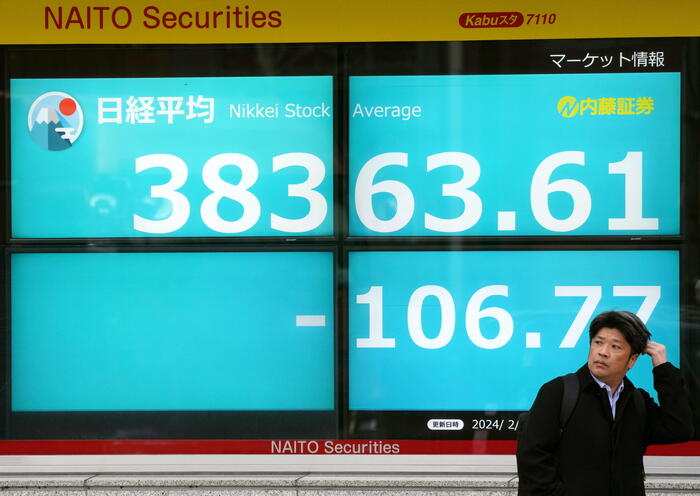The need to find a solution to the problem of the US debt ceiling is pressing. So much so, that President Joe Biden has chosen to shorten the one-week tour he had planned for Asia Pacific, as officially confirmed by the White House on Tuesday. He will arrive, as planned, in Japan on Thursday to participate in the G7 summit in Hiroshima this weekend, where the war in Ukraine will play a prominent role. But he has cancelled his planned stops immediately afterwards, to Australia and a historic visit to Papua New Guinea, to return to Washington and continue economic negotiations.
Biden will travel back Sunday after the summit closes "for meetings with congressional leaders to ensure Congress takes action on time to prevent defaults," presidential spokeswoman Karine Jean-Pierre said in a statement.
The announcement confirms what has been rumored for days and highlights the urgency of avoiding a technical bankruptcy with potentially catastrophic consequences for the economy of the United States and around the world. Economists warn of job losses and the specter of a recession in the country if a solution is not found.
The administration already reached the spending limit authorized by Congress, 31.4 trillion dollars, in January and since then it has been working with extraordinary measures. Treasury Secretary Janet Yellen warns that the government could run out of money to meet its payments on June 1. In a public appearance on Tuesday, he indicated that the lack of an agreement is already beginning to be noticed in the financial markets.
Jean-Pierre's statement came on the heels of Biden's re-meeting with congressional leaders: Senate leader Michael Schumer, a Democrat; the leader of the Republican minority in that forum, Mitch McConnell; the speaker of the House of Representatives, Republican Kevin McCarthy, and the head of the Democratic congressmen, Hakeem Jeffries.
It was the second in a week and there has been no white smoke, nor was it expected. Democrats and Republicans still lag far apart, both parties insist. But cracks are beginning to be glimpsed in the positions of both by which a pact could be reached to avoid disaster. Biden has been insisting that "we can do it." In an appearance before the press after the meeting, McCarthy pointed out that "it is possible to reach an agreement by the weekend."
One of the novelties, according to McCarthy, is that Biden has "changed the scope" of who intervenes in the negotiations of the respective teams to try to reach an agreement, which had advanced very slowly in the last week. Both sides will have specific negotiators to continue the talks. "The structure of how we negotiate has improved," according to the speaker of the House of Representatives.
Republicans are calling for drastic cuts in government spending, including on welfare, to give the go-ahead for a suspension of the debt limit or its expansion. The White House demanded approval without any conditions, although it has somewhat relaxed its position. Democrats now point out that bipartisan legislation will be needed to prevent defaults, and Schumer himself has expressed his and Jeffries' commitment to getting that kind of measure.
The cancellation of the second part of the presidential trip to Asia-Pacific is something that some Republicans had been demanding before the limited margin of time left for the negotiation. "Once an agreement is reached, there will still be a lot of work to be done," Sen. John Cornyn, R-Texas, warned Tuesday.
But the renunciation of the stages of Australia and Papua New Guinea represents a blow to the geopolitical strategy of the Biden administration, which has made it a priority to develop a dense network of alliances in the region to respond to the rise of China. In Sydney, the occupant of the White House was to participate in a summit of the Quad, the informal group made up of the United States, Japan, Australia and India. In Port Moresby, he was to meet with the leaders of the Pacific island nations, a group of countries of great strategic value with which Washington has intensified its ties exponentially in the last year. He also planned to sign a defense cooperation agreement with the government of Papua New Guinea, in what would have been the first visit by a U.S. president to that oceanic country in history.
"Revitalizing and strengthening our alliances and advancing partnerships like the Quad remain a key priority for the president," said Jean-Pierre, who promises that his government will find "other ways" to boost its ties with Australia, Papua New Guinea and the Pacific Islands over the next year.
Follow all the international information on Facebook and Twitter, or in our weekly newsletter.

/cloudfront-eu-central-1.images.arcpublishing.com/prisa/BJNHTA7H7454IG6NLPBAMX4TDY.jpg)


/cloudfront-eu-central-1.images.arcpublishing.com/prisa/OORXB2YNDLANHK3OYLEUMD7SPM.jpg)
/cloudfront-eu-central-1.images.arcpublishing.com/prisa/3I74UEXLYRBBRPGPSGWNN6WXH4.jpg)



